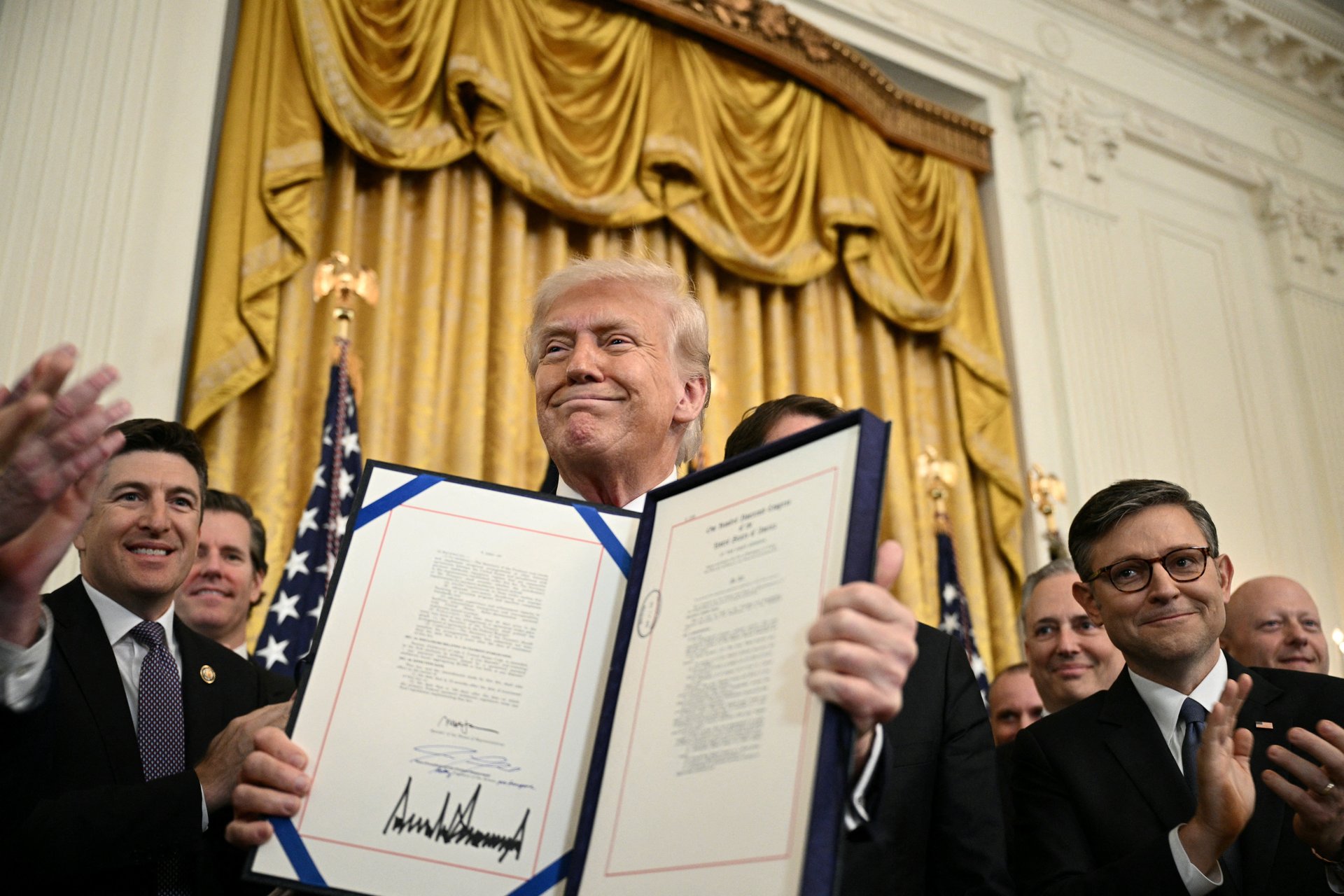Trump to sign executive action for 401(k)s to include crypto and private equity
The $12.5 trillion 401(k) market will soon be open to alternative assets — and with it, a wave of legal, political, and financial uncertainty

Brendan Smialowski/AFP via Getty Images
The Trump administration is giving your 401(k) plan a shot of private capital. President Donald Trump is expected to sign an executive order on Thursday that would open the door for 401(k)s to invest in private equity, real estate, cryptocurrency, and other so-called “alternative assets” that have historically been off-limits to everyday retirement savers — a sharp break from the framework that has defined most 401(k) plans for decades.
Suggested Reading
The order will reportedly instruct the Department of Labor to reexamine federal guidance that has long discouraged plan administrators from offering access to private markets. It will also call on the Treasury Department and the Securities and Exchange Commission (SEC) to work with the Labor Department to clarify how fiduciary rules should apply to funds that include alternatives such as crypto or private equity, according to Bloomberg reporting that cites a person familiar with the plan.
Related Content
According to an anonymous White House official speaking to Reuters, the executive order aims to “facilitate access to alternative assets for participant-directed defined-contribution retirement savings plans by revising applicable regulations and guidance.”
Crypto didn’t stay silent. As forex and crypto trackers reported, Bitcoin surged roughly 2% on the news — poking above $116,000 — as Ethereum followed suit, signaling investor optimism and a potential shift in market psychology.
This move would be a major win for private asset managers and cryptocurrency advocates, who have lobbied for years to unlock a portion of the estimated $9–$12.5 trillion parked in U.S. defined-contribution plans, which could shift trillions from passive index funds into illiquid vehicles. Firms such as Blackstone, KKR, Apollo, and crypto platforms could see a flood of retail capital — if employers choose to include such offerings and regulators finalize changes. Meanwhile, financial instruments are bubbling up. Private-credit ETFs are rapidly gaining traction. Firms such as State Street, in partnership with Apollo, are experimenting with structures that offer a taste of private returns via liquid vehicles, with built-in buyback mechanisms to navigate enforcement thresholds.
Trump’s expected order would revive and expand on efforts from the president’s first term, when the Labor Department under then-Secretary Eugene Scalia issued guidance allowing private equity in some 401(k) funds. That rule was later rolled back under President Joe Biden, whose administration expressed concern about retail investors being exposed to high-risk, high-fee products.
Now, Trump’s administration is seeking to not only reinstate that pathway but go further — adding real estate and digital assets to the list. The order’s language also appears designed to reduce litigation concerns for plan administrators, a key factor that has previously deterred the use of alternatives.
The coming executive order also dovetails with Trump’s broader effort to elevate the digital asset structure into mainstream financial infrastructure. In July, the White House hosted a “Crypto Week” and signed a law regulating stablecoins — the GENIUS Act — the first such federal law in the U.S. Venture capitalist David Sacks is the administration’s “AI and crypto czar,” and Trump has talked about wanting to be the “first crypto president.” In March, the president called for the creation of a Strategic Bitcoin Reserve. The Trump family has also launched a blockchain venture, which has added an estimated $600-plus million to the president’s net worth.
Critics have been raising alarms about the inclusion of alternative assets in retirement plans, citing higher fees, limited liquidity, and weaker disclosure requirements compared to publicly traded securities. Sen. Elizabeth Warren, in a June letter to Empower Retirement, warned that private investments lack transparency and pose “unsubstantiated claims of high returns.” Legal expert Jerry Schlichter has gone further, calling private equity for 401(k)s “a minefield of danger” for plan administrators, citing illiquidity, valuation opacity, and reputational risk.
Industry leaders such as BlackRock CEO Larry Fink have also acknowledged the risks, including potential litigation. Fink said on a recent earnings call, “There is a lot of litigation risk. There’s a lot of issues related to the defined contribution business.” BlackRock’s chief financial officer, Martin Small, added that industry-wide litigation reform may be necessary to avoid legal bottlenecks. Still, BlackRock plans to launch a retirement fund next year that includes private equity and credit.
While the coming executive order will lay the groundwork for expanded access, adoption will likely be gradual — and some lawyers are, according to Bloomberg, already preparing legal challenges tied to investor suitability and fiduciary duty.
The last major overhaul of U.S. retirement policy came in 2006, when the Pension Protection Act encouraged automatic 401(k) enrollment and endorsed target-date funds as a default option — moves designed to simplify retirement saving and limit risk. Trump’s order takes a different approach: expanding the menu of investment choices, increasing exposure to illiquid and complex assets, and potentially putting more legal pressure back on employers.
Whether the change in 401(k) plans delivers broader opportunity or bigger risk will depend on how regulators write the rules — and how employers respond. For now, the message from Washington is unmistakable: The boundaries of retirement investing are shifting, and passive index plans may be a thing of the past. Whether savers are ready for that shift remains to be seen.
